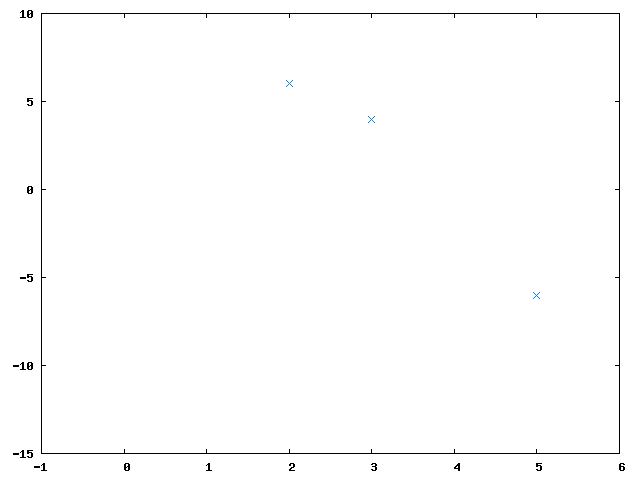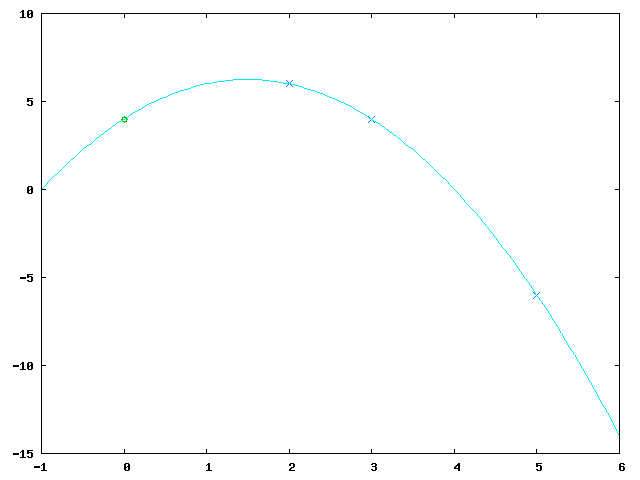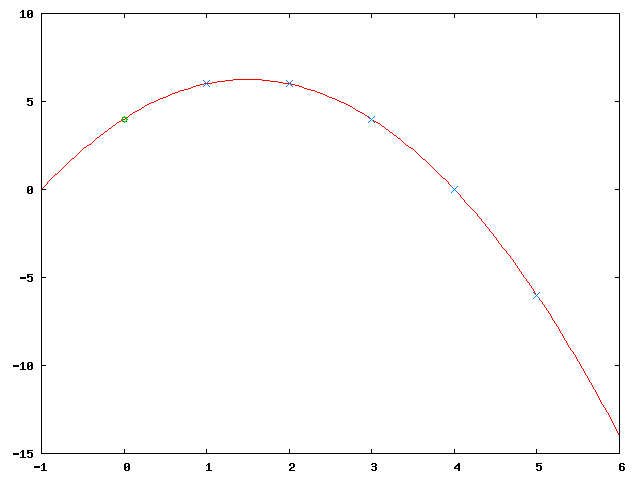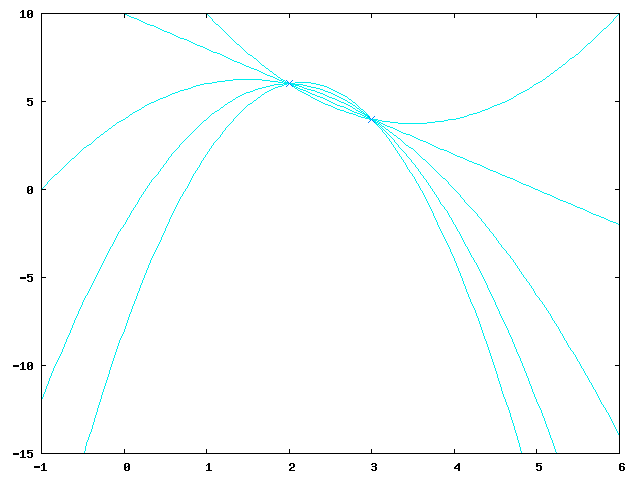Secret Sharing: Difference between revisions
| Line 26: | Line 26: | ||
* <math>6 = a_0 + 2 a_1 + 4 a_2</math> |
* <math>6 = a_0 + 2 a_1 + 4 a_2</math> |
||
* <math>4 = a_0 + 3 a_1 + 9 a_2</math> |
* <math>4 = a_0 + 3 a_1 + 9 a_2</math> |
||
with three unknown variables thus allowing for infinitely many solutions. |
with three unknown variables thus allowing for infinitely many solutions which are all equally likely. |
||
The image shows five of them (for <math>a_2 = -3</math>, <math>a_2 = -2</math>, <math>a_2 = -1</math>, <math>a_2 = 0</math> and <math>a_2 = 1</math>): |
|||
[[Image:Secret-Sharing-security.png]] |
|||
Revision as of 12:59, 1 December 2004
Secret Sharing is used to split a secret (usually a key) into several pieces which are then given to distinct persons so that some of these persons must cooperate to reconstruct the secret.
A Simple Approach
One simple approach to split a secret number into pieces … such that any pieces are sufficient (and necessary) to reconstruct is using a polynomial.
When splitting the secret a random polynomial … with is generated. The are calculated as for ….
Given any it is possible to interpolate the polynomial and calculate which gives the original secret .
Example
Let , , , that is: The secret is split into 5 parts of which at least 3 are necessary to reconstruct the secret.
Now generate 2 random numbers and , let's say: , which give the polynomial . Obviously that's a quadratic function and any 3 points on the function are sufficient to interpolate the function.
The image shows the resultant function (in red), the original secret (in green, at ) and the 5 new secret parts (in blue).
To reconstruct the original secret any 3 secret parts (let's say and are merged together:

Then the polynomial is interpolated and computed:

Let's suppose we wanted to reconstruct the shared secret but only had two of the parts: and . This gives two equations:
with three unknown variables thus allowing for infinitely many solutions which are all equally likely.


































